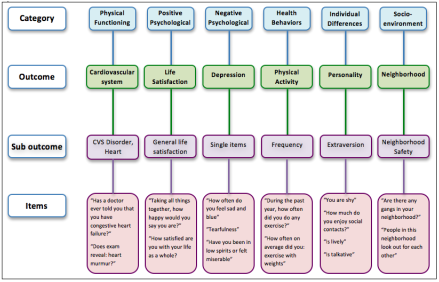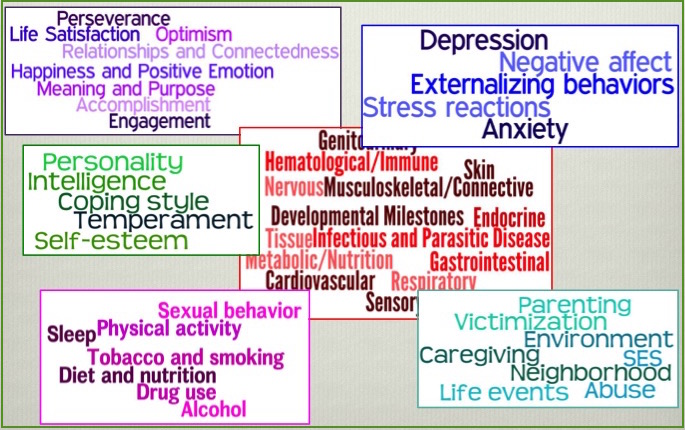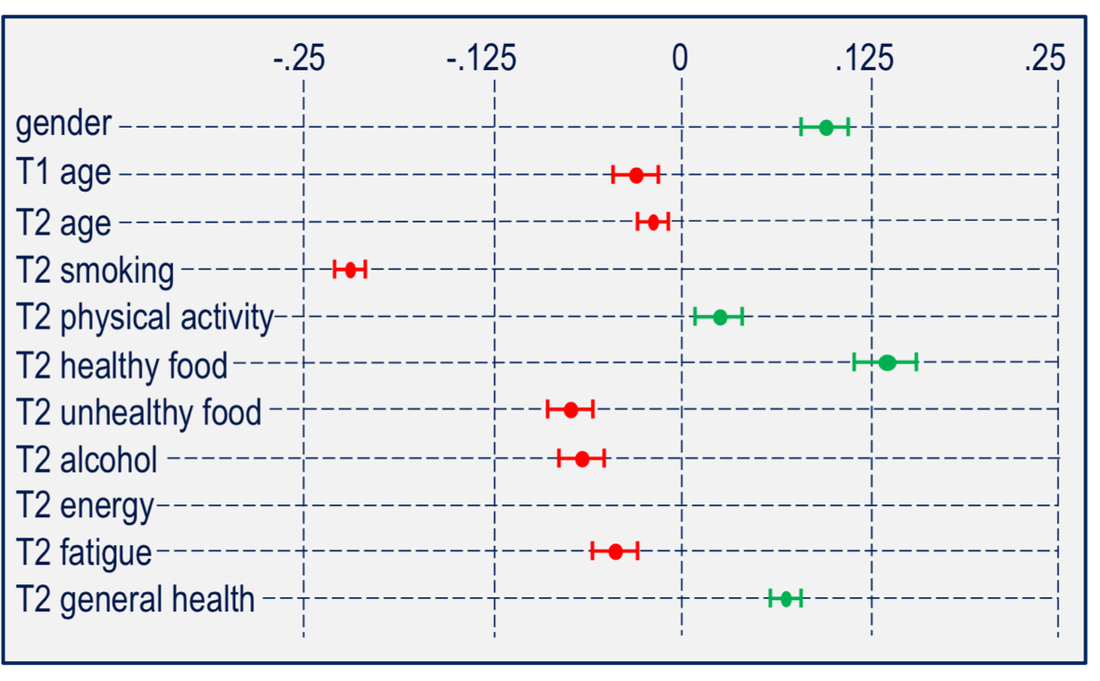The TADPOHLS Database
Longitudinal studies are invaluable for investigating the development of health and well-being over the life course. There are now numerous studies available for secondary data analyses that have followed participants across decades of their lives. These investigations have collected detailed information on personal factors, environments, behaviors, physical health, and psychological functioning. Analysts wishing to use one of these datasets can feel overwhelmed in finding and selecting the right one for their purpose. To address this challenge, we developed The Anatomy of Developmental Predictors Of Healthy Lives Study (TADPOHLS) database, which provides a typology of items and constructs from 14 longitudinal studies (see Kern et al., 2016, Applied Developmental Science for details).
|
We created an extensive coding typology to categorize the items, which are structured hierarchically, with six main categories:
Within each of the six categories, we defined specific outcomes and sub outcomes: |
The full typology can be found here. We believe that this typology offers a resource for others, which you are welcome to use if you find it helpful.
The data base can be queried to select specific constructs and locate studies with overlapping constructs and items. To illustrate, we examined whether perseverance and optimism measured in adolescence predicted four physical health outcomes measured in adulthood, 15 to 20 years later: self-rated health, physical energy, fatigue, and cardiovascular-related conditions.
|
Four studies had items assessing perseverance and 5 studies had items assessing optimism. Both perseverance and optimism were positively associated with self-rated health and was negatively related to fatigue. Optimism was also positively related to physical energy. The figure to the right shows the pattern of results for perseverance (presented by my co-author, Libby Benson, at the 2014 M3 Conference in Connecticut). .
The TADDPOHLS database is meant to be a resource for researchers interested in collaborative work, integrative analysis, and studying longitudinal association between adolescence and adult outcomes. |
My intention is to put this online to make it easily accessible, but time constraints have prevented me from completing this. If you are are interested in the database, you can register interest here.


